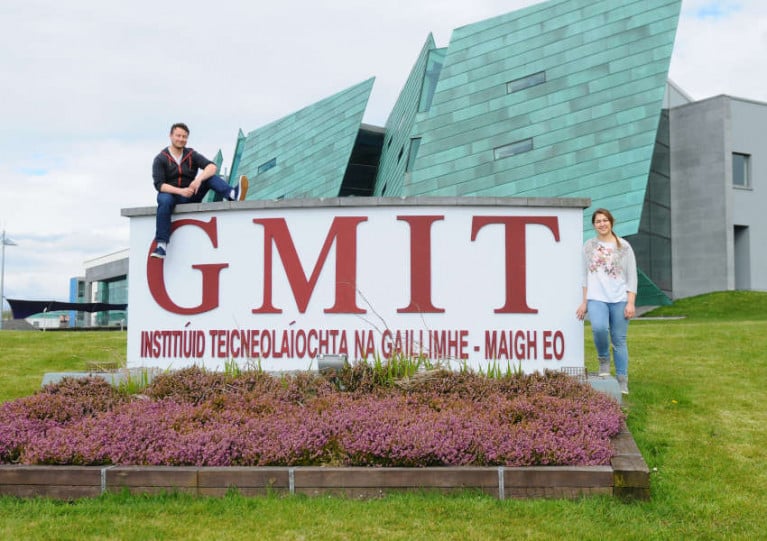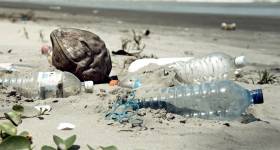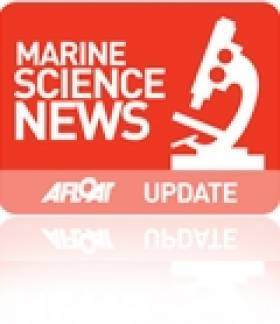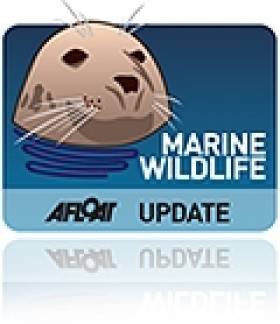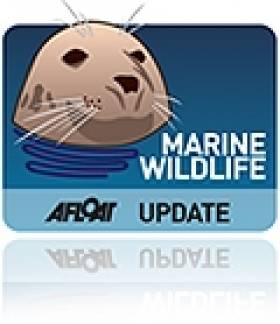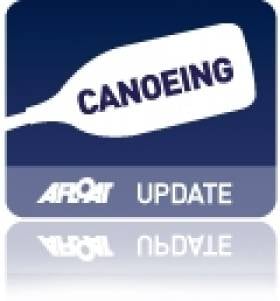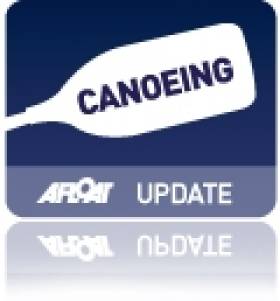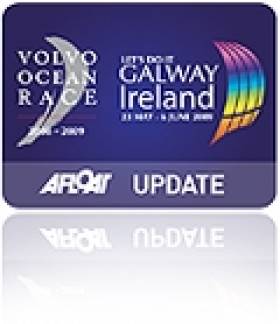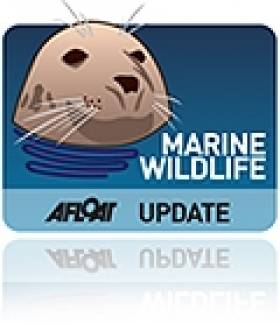Displaying items by tag: GMIT
SmartBay Ireland Announces New Scholarship For Research With GMIT
SmartBay Ireland have collaborated with the Galway-Mayo Institute of Technology (GMIT) to launch a new scholarship scheme for a candidate from the Connemara Gaeltacht to begin a Master’s research programme.
Commencing in November 2020, the new programme aims to develop post-primary educational resources in the field of marine renewable energy.
And the scholarship, which is now open for applications, is designed to fund and support a candidate in the Connemara Gaeltacht Region — while also driving awareness around ocean literacy, marine renewable energy, and sustainability through education in local schools.
The successful candidate will receive full funding support to the value of €44,500 over the duration of the 24-month project, which will focus on the preparation and delivery of educational resources at post-primary level, in both English and Irish.
SmartBay Ireland general manager John Breslin said: “This scholarship is an excellent opportunity for the successful candidate not only to advance in their career, but to be at the forefront of developing educational resources and make a positive and lasting impact on the post primary curriculum.”
Applications are open until noon next Wednesday 16 September for candidates with experience as a post-primary educator, preferably in the field of science, with demonstrable proficiency and fluency in the Irish language.
“This is a very exciting opportunity which would suit an enthusiastic candidate with a passion for education, the marine and sustainability,” said Dr Róisín Nash, a lecturer at GMIT.
“At a time when research and management of essential marine resources are key features of a sustainable future, this is a unique project with lots of opportunities for the candidate to be creative and influential in incorporating marine and renewable energy into the classroom.”
The SmartBay Ireland Postgraduate Research Scholarship is funded by the Galway-Mayo Institute of Technology, the Marine Institute, the Sustainable Energy Authority of Ireland and Údarás na Gaeltachta.
Full details on the postgraduate research scholarship and application procedure are available from GMIT website HERE.
Public Lecture On Marine Litter Tonight In Galway
‘Marine litter: are there solutions to this global environmental challenge?’ is the title of a free public lecture at 7pm tonight (Thursday 10 January) in the main concourse of GMIT’s main Galway campus.
Prof Richard Thompson from the School of Biological and Marine Sciences at Plymouth University will deliver the lecture ahead of the second Ecology and Evolution Ireland Conference at GMIT and NUI Galway this weekend.
Prof Thomson will discuss issues surrounding the widespread distribution of plastic debris at the sea surface, on the sea bed and on shorelines.
Nearly 700 marine wildlife species are known to encounter marine litter, with many reports of physical harm resulting from entanglement in and ingestion of plastic.
At the same time it is very clear that plastic items bring many societal benefits. Can these benefits be achieved without emissions of waste to the environment?
Progress requires systemic changes in the way we produce, use and dispose of plastic. Prof Thomson will suggest that a key solution to two major environmental problems, our non-sustainable use of fossil carbon (to produce plastics) and the accumulation waste, lies in recycling end-of-life plastics into new products.
While the two days of the conference on Friday 11 ad Saturday 12 January are now fully booked, attendance at this evening’s lecture is remains open and free to all.
#MarineScience - Suitable candidates in the marine science field are invited to apply for the accredited continuous professional development module (CPD) titled Applied Marine Biological Sampling and Data Collection.
The module will take place from 30 September to 25 October 2013 and is offered by Galway-Mayo Institute of Technology (GMIT) and the Strategic Marine Alliance for Research and Training (SMART).
Applied Marine Biological Sampling and Data Collection aims to provide attendees with the detailed practical knowledge and skills necessary to design and implement biological sampling and data collection campaigns on marine commercial platforms.
The module is aimed at postgraduate students of marine science and marine industry personnel.
Four days of ship-time sampling and data collection onboard the RV Celtic Voyager and the IWDG's Celtic Mist off Cork and in the Shannon Estuary respectively are supported by three days of intensive laboratory practicals and lectures in GMIT.
- onboard, at practicals and lectures is required from 7-13 October with all other elements accomplished through student-centred distance learning.
Themes addressed include quantitative sampling of fisheries and benthos; surveying and monitoring methodologies for cetaceans and seabirds; tissue sampling and preservation; and oceanographic data collection and sampling.
Completion of the module results in an award of 5 credits at NFQ level 9 under the European Credit Transfer System (ECTS).
The Strategic Marine Alliance for Research and Training (SMART) is a marine science partnership programme designed to further develop capacity in carrying out offshore operations on board research vessels for third level students of marine-related science and technologies.
This strategic collaborative inter-institutional programme is led and funded by Irish Higher Education Institutions (HEIs) and the Marine Institute, and is also supported by the Higher Education Authority (HEA).
The online application forms is available HERE or my e-mailing [email protected]. Further details on the course and its instructors is included in a PDF available to read or download HERE.
'Frontier' Surveyors Meet Sperm Whales and Killer Whale
#MarineWildlife - Sperm whales and a killer whale were among the finds on the last big effort of this year's Cetaceans on the Frontier survey led jointly by the Galway-Mayo Institute of Technology (GMIT) and the Irish Whale and Dolphin Group (IWDG).
As previously reported on Afloat.ie, marine scientists from GMIT's Marine and Freshwater Research Centre are on board the RV Celtic Explorer to carry out the fourth dedicated survey of cetaceans on the continental shelf edge.
The ship was surveying a zig-zag pattern in the Atlantic yesterday 2 February, some 55 nautical miles west-by-northwest of Achill Island (visible on this map HERE) when the team encountered at least two sperm whales, though an elusive third may also have been present - as indicated by the hydrophone being towed 200m behind the vessel.
"The blows continued and as we got closer, more and more body of the surfacing whale could be seen until we were treated to some reasonable views of the steep nose, long flat back and stumpy dorsal fin on initial surfacing followed by a thick tail stock with ‘knuckles’ seen when flaking," writes Niall Keogh on the Cetaceans on the Frontier blog.
Soon after that, the researchers were treated to their first sight of a killer whale in Irish waters - followed by a number of pilot whales surfacing close to the ship.
#MARINE WILDLIFE - Galway-Mayo Institute of Technology (GMIT) has recently teamed up with the Technical University of Catalonia in Spain, the Marine Institute and Biospheric Engineering Ltd to begin a project studying ocean noise in Irish waters.
Anthropogenic noise, or noise generated by human effect such as industry, is now recognised as a significant pollutant in the marine environment and there is particular concern of the effects of anthropogenic noise on marine wildlife.
Cetaceans in particular have a highly developed auditory system and use sound actively for orientation, feeding and communication.
As part of this project, an approximate disturbance area for baleen whales will be estimated, helping to fulfil requirements under the EU Habitats Directive for marine mammals.
This work, funded by the Environmental Protection Agency serves to inform management on how to meet requirements under MSFD and provide recommendations on cost-effective monitoring schemes vital for the future protection of our seas.
For more information on ocean noise and this project visit www.monitoringoceannoise.com or contact [email protected]
UL Take Title at Irish Kayaking Intervarsities
#KAYAKING - The University of Limerick were overall winners in the 2012 Irish Kayaking Intervarsities at GMIT Castlebar last weekend.
As the Mayo Advertiser reports, some 500 students were on hand for the three days of competition, which kicked off with canoe polo on Lough Conn (won by GMIT over DCU).
Saturday's action saw the whitewater contest on the Clydagh River, with Limerick emerging on top, and the freestyle event on the River Clare at Tuam Wave.
Sunday closed with the long distance event at Lough Lannagh, which clinched the weekend for UL's kayakers.
Mayo also hosted the Irish Intervarsity Sailing Championships in Rosmoney last week, which attracting 200 students to the Westport area.
Irish Kayaking Intervarsities This Weekend
#KAYAKING - The Galway Advertiser reports that the Galway-Mayo Institute of Technology (GMIT) at Castlebar will host the Irish Kayaking Intervarsities this weekend from today 17 February.
Eighteen colleges will compete in events on the Clydagh river and Lough Lannagh in divisions from whitewater and freestyle to canoe polo and long distance.
“The Kayaking Intervarsities will be a good way to highlight this adventure sports hub and the excellent town centre watersports amenity of Lough Lannagh," said Stephen Hannon of GMIT.
“For spectators the location is very convenient," he added. "People will have an opportunity to see a sport that is sometimes under the radar but at which Ireland has been represented in every Olympics since Munich in 1972.”
The Galway Advertiser has more on the story HERE.
Volvo Ocean Race in Galway Will See Irish Food in Focus
#VOLVO OCEAN RACE - Top chef Maurice Keller was in Abu Dhabi last week to fly the flag for Irish food at the third stopover of the Volvo Ocean Race, Waterford Today reports.
Keller spent a few days away from Waterford's Arlington Lodge to join members of Good Food Ireland, Tourism Ireland and Irish embassy staff for a special 'Ireland Day' at the VOR Village.
The initiative was designed to promote Ireland as a prime tourist destination ahead of this summer's Volvo Ocean Race visit to Galway.
And food will play a major role in efforts to attract visitors to the finish line in Galway this July, according to the Limerick Post.
Foodies from across the mid-west will converge at a 'Foodie Forum' at the Galway-Mayo Institute of Technology on 2 Feburary, where plans to showcase Irish food in the city will be top of the agenda.
“At the launch of the countdown to the Volvo Ocean Race, the Let's Do It Galway team announced the four main pillars of the race next summer – marine, green, innovation and food," said Cáit Noone, head of the Hotel School at GMIT.
"The food pillar will provide Ireland with a global showcase opportunity to share with the world our food experiences and the outstanding locally sourced produce we have to offer.”
IWDG to Host European Cetacean Conference in Galway This March
#MARINE WILDLIFE - The Irish Whale and Dolphin Group (IWDG) will host the 26th annual European Cetacean Society Conference in Galway on the weekend of 24-25 March this year.
The Galway Bay Hotel will be the site for the main conference sessions, while workshops will also be held at the Galway-Mayo Institute of Technology (GMIT).
This year's gathering is being held under the theme 'Communication: Information and Ideas Worth Sharing'. Participants will be exploring communication between marine mammals as well as between marine scientists, and between scientists and the public.
As Ireland's Wildlife reports, the conference "offers a offers a great opportunity to find out more about whales and dolphins, their conservation, the cetacean research being carried out in Europe and to meet the researchers who are working to uncover the mysteries of these most enigmatic of creatures."
Registration is now open for the two-day event. For full details of the conference programme, venues and booking information, visit the European Cetacean Society Conference micro site HERE.



























